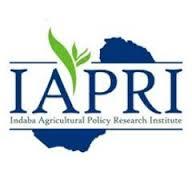Resource information
Key points:
Initial contacts between investor and community are important and prior information of the local
population is crucial for laying a foundation for a good relationship. However, remaining realistic about
what the investment can achieve and regular contacts to the community are equally important.
Land issues in Zambia are highly contentious. Even if investors target state land, this may lead to
dissatisfaction of the local population.
Employment is often thought of as the main benefit to local communities. In reality, the potential of
commercial farms to employ people from the local population is limited. High mechanization and demand
for qualified labor leads to limited job opportunities for local communities.
Outgrower schemes bear the potential to include large parts of the population but are a challenging
endeavor in poor rural settings. We recommend that investors link up with experienced partners to set up
such schemes. This also includes checks and balances for the investor.
Investments are not positive in each and every regard. Trade-offs between socio-economic and
environmental goals need to be communicated and negative effects need to be mitigated.
Investors often invest in community infrastructure. We recommend that investors cooperate with the
government in setting up infrastructure that typically is carried by the government.

